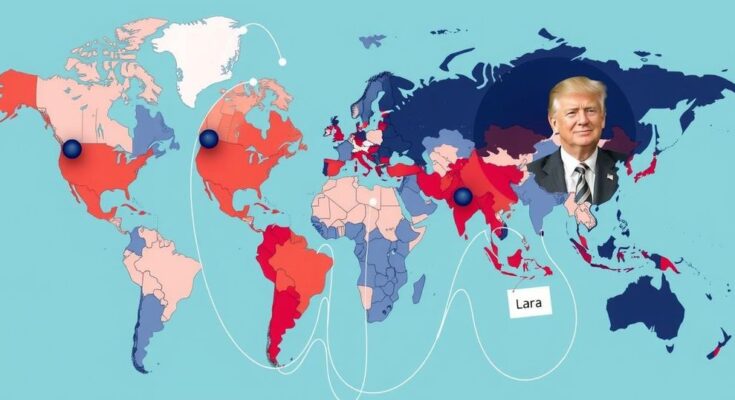In 2024, global elections precipitated a pronounced anti-incumbent wave, leading to the decline of established political parties in multiple countries. High inflation and the fallout from the COVID-19 pandemic undermined public confidence in existing governments, resulting in unexpected electoral results and a troubling rise in right-wing populism. Allegations of election interference further complicated the political landscape, suggesting a continuous struggle for stable governance.
In 2024, elections across the globe confirmed a widespread anti-incumbent sentiment, reflecting a populace weary of ongoing economic dislocation and societal instability. Major democratic contests in approximately 70 countries resulted in surprising outcomes, often to the detriment of established parties. Key incidents included voter revolts in nations such as South Africa, where the African National Congress was ousted after decades of rule, and India, where Prime Minister Narendra Modi’s party suffered a significant reduction in its parliamentary hold.
Political shifts marked this year as traditional strongholds of power crumbled under pressures of discontent fueled by prolonged pandemic effects and economic inflation, dominated by external factors like the conflict in Ukraine. Observers noted a troubling trend towards extreme right-populist candidates in various regions, signaling a shift away from moderate governance.
The electoral turmoil extended beyond incumbent losses, with allegations of electoral interference surfacing in several nations. Notable was the disbanding of Romania’s presidential runoff under dubious circumstances linked to external meddling. Moreover, candidates with ties to dynastic politics remained a significant theme, leading to political upheaval in countries such as Pakistan and Bangladesh.
As the year closed, uncertainty loomed, especially with the re-election of Donald Trump as U.S. President, leaving global leaders analyzing future implications. The combined impact of rising authoritarian tendencies, corruption allegations, and public dissatisfaction suggests a tumultuous path ahead for democracy, with critical elections on the horizon in Germany and Canada.
The global political landscape in 2024 was characterized by significant electoral upheaval, largely attributed to the socio-economic impact of COVID-19 and subsequent inflationary pressures. A multitude of countries, from established democracies to emerging ones, faced public discontent leading to anti-incumbent sentiments. Political analysts pointed to both the persistence of extreme right ideologies and the challenges posed by election interference as critical factors in shaping electoral outcomes this year.
The 2024 elections painted a complex picture of global democracy, with rising anti-incumbent sentiments indicating widespread dissatisfaction with existing governance. High inflation, economic challenges, and social unrest contributed to the inclination of voters to reject long-standing parties. Simultaneously, the emergence of populist and far-right movements indicated a notable shift in political preferences. As nations prepare for further electoral processes in 2025, the potential challenges to stable governance may reveal deeper underlying tensions within democratic frameworks.
Original Source: www.clickorlando.com




